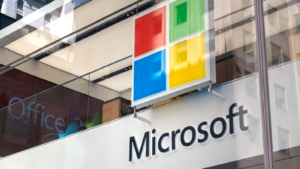Billionaire activist investor Daniel Loeb describes the strategy at his Third Point hedge fund as “an event-driven and value approach.” He looks to unlock shareholder value through special situation investing, whether it is mergers and acquisitions, restructurings or other catalysts that can spur gains.
Loeb started Third Point with just $3 million in 1995 and grew it into a hedge fund with $6.6 billion in assets under management. He is definitely not a wallflower.
Rather, Loeb is the epitome of an activist investor, taking positions in companies and letting management know when he disagrees with their strategies. He often does so quite publicly in shareholder letters that many times acerbically take management to task.
Below are his three biggest bets currently. Nearly $2.5 billion, or 37% of total AUM, are in these three stocks. Did Loeb err or is it an investing masterstroke?
Amazon (AMZN)

Third Point owns 4.2 million shares of Amazon (NASDAQ:AMZN) stock worth approximately $638 million. With an average buy price of around $118 per share, Loeb is sitting on gains of almost 58% at current prices.
Wall Street thinks there is still room to move higher as the consensus one-year price target is over $211 per share. At the high end, analysts see the e-commerce giant running up to as much as $245 per share. That would be more than double Loeb’s buy-in price. Amazon represents 9.7% of Third Point’s portfolio.
While the hedge fund operator is an activist, Amazon isn’t one he is targeting. Rather, this could be the value side of his business that views AMZN stock as one to buy and hold forever.
Because of its dominance in e-commerce, the leadership it holds in cloud services and its ability to integrate artificial intelligence into every aspect of its business to improve not only its own operations but those of its clients, Amazon is still a massive growth stock.
Microsoft (MSFT)

Microsoft (NASDAQ:MSFT) is the second-largest position Loeb has in Third Point.
He owns just over 2 million shares valued at $758 million, or 11.5% of the hedge fund’s total. Microsoft currently trades at $412 per share, which is about 47% above Loeb’s average $282 per share buy price.
There is also more upside wiggle room in MFST stock, according to Wall Street. The one-year price target analysts assigned Microsoft is over $452 per share, implying 9% growth still possible.
However, one analyst has a $600 per share price target, indicating an additional 46% gain to be had.
Microsoft is another company that is taking a holistic view of AI and how it can benefit the organization. It was one of the first businesses to fully integrate the technology into all its platforms and products.
Where Amazon invested billions into AI startup Anthropic, Microsoft backed OpenAI, the company most closely associated with generative AI through its ChatGPT platform.
Monetizing AI has been a challenge for Microsoft and other businesses in the field. That will ultimately be a consideration in how far and how fast the technology gets adopted.
PG&E (PCG)

The biggest holding in Third Point is electric utility Pacific Gas & Electric (NYSE:PCG), or PG&E. It may seem an odd choice for the hedge fund, particularly since Loeb owns 57.9 million shares worth over $1 billion but Loeb has owned shares for years.
His buy price on the stock is an average of around $9.70 per share, giving him an 85% gain.
Yet it is the value investor in him that saw potential in a restructuring. PG&E was crushed by the California wildfires in 2017 and 2018, including the Camp Fire that killed 85 people, destroyed 23,000 homes and businesses, and destroyed the town of Paradise.
The utility’s failure to maintain its equipment caused it. PG&E ultimately pled guilty to 84 counts of involuntary manslaughter and was fined 44 million. It declared bankruptcy in 2019.
Loeb first bought PG&E bonds when they fell to distressed levels and subsequently became a shareholder in the company, building it into his largest position. He told investors the restructured company’s “fundamentals position it at the high end of the utility industry,” according to GuruFocus.
Loeb counted on Pacific Gas & Electric finding its way out of the morass, which his returns to date suggest it has.
On the date of publication, Rich Duprey did not hold (either directly or indirectly) any positions in the securities mentioned in this article. The opinions expressed in this article are those of the writer, subject to the InvestorPlace.com Publishing Guidelines.
